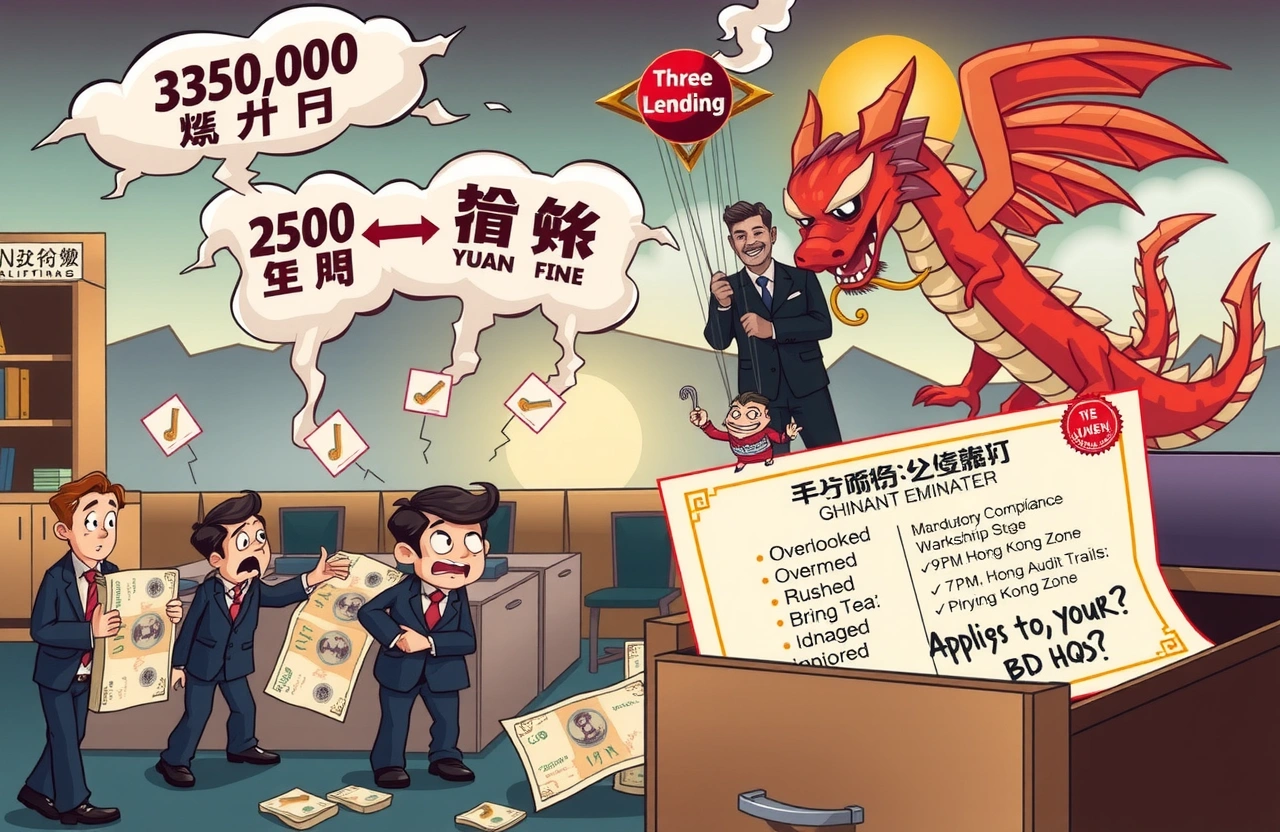Significant Penalty for Lending Oversight Failures
The National Financial Regulatory Administration has imposed a 350,000 yuan ($48,200) fine on Zhongyuan Bank’s Pingdingshan branch, marking a critical regulatory intervention in China’s banking sector. Announced on July 8, 2025, this enforcement action specifically cited failures in loan “three reviews”—a cornerstone due diligence framework mandating pre-lending investigation, during-lending verification, and post-lending monitoring. Former corporate client manager Nie Junfeng (聂军峰) received a formal warning for his role in these violations, spotlighting regulators’ expanding focus on individual accountability.
Understanding the “Three Reviews” Imperative
The Three Pillars of Chinese Loan Due Diligence
China’s loan “three reviews” (三查) framework represents regulators’ systemic approach to credit risk management:
– Pre-lending investigation: Verifying borrower credentials, repayment capacity, and collateral validity
– During-lending verification: Real-time documentation audits during disbursement
– Post-lending monitoring: Continuous assessment of loan utilization and early warning systems
Consequences of Dilution
The penalties against Zhongyuan Bank underscore how diluted reviews undermine financial stability. Research from the People’s Bank of China indicates regions with rigorous review compliance experience 37% lower non-performing loan ratios.
China’s Escalating Banking Supervision Landscape
The National Financial Regulatory Administration’s 2024 enforcement report reveals 611 banking penalties totaling 1.93 billion yuan—a 17.4% YoY increase. This forms part of China’s systemic deleveraging campaign targeting shadow banking and irresponsible lending practices.
Merger-Related Compliance Challenges
The violation originated from Pingdingshan Bank operations before its merger into Zhongyuan Bank—highlighting institutional integration pains. Financial Stability Board data indicates post-merger compliance incidents surge 42% during the first three-year consolidation phase.
Personal Accountability Mechanics
Nie Junfeng’s warning exemplifies regulators’ direct personal liability enforcement (CBIRC, 2023). Since the 2020 Banking Law amendments, prominent cases include:
– Industrial Bank executive fines exceeding personal annual compensation
– China Guangfa Bank credit officer license revocations
– Evergande Group-related risk officer criminal proceedings
Strategic Imperatives for Banking Institutions
Reinvigorating Risk Governance
Leading institutions mitigate review failures through:
– Centralized digital audit trails replacing manual verifications
– AI-powered collateral valuation systems
– Cross-branch loan portfolio stress testing
– Third-party borrower data partnerships with national credit bureaus
Cultural Reinforcement Methodology
ICBC’s compliance transformation established:
1. Mandatory quarterly board-level risk reviews
2. Performance metrics weighting diligence compliance at 40%
3. Automated employee certification systems
The approach reduced sanctions by 63% within 24 months.
Broader Implications for China’s Financial Ecosystem
This case highlights systemic vulnerabilities at provincial banking institutions with 63% of 2024 penalties involving prefecture-level operations. With Zhongyuan Bank operating 500+ branches across Henan province, regulatory attention extends beyond the Pingdingshan incident.
Emerging Warning Paradigms
Notably, 2024 witnessed a 23% expansion in non-monetary sanctions like Nie Junfeng’s warning—an enforcement tool demonstrating:
– Regulators’ preference for career-impacting deterrents
– Professional reputation as a disciplinary mechanism
– Reduced dependence on financially crippling fines
Reinforcing Banking Integrity Mandates
The disciplined enforcement against Zhongyuan Bank signals continued rigor in China’s bank supervision frameworks. Financial institutions must upgrade “three reviews” implementation through workflow digitization and personnel training beyond minimal compliance thresholds. Regulators increasingly perceive lending diligence as foundational to broader economic stability—especially crucial amidst China’s ongoing debt resolution campaigns targeting overleveraged industries and regional governments.
For comprehensive analysis of China’s evolving financial regulatory landscape, subscribe to Yuan Trends Banking Insight reports featuring proprietary enforcement data and compliance benchmarks.



